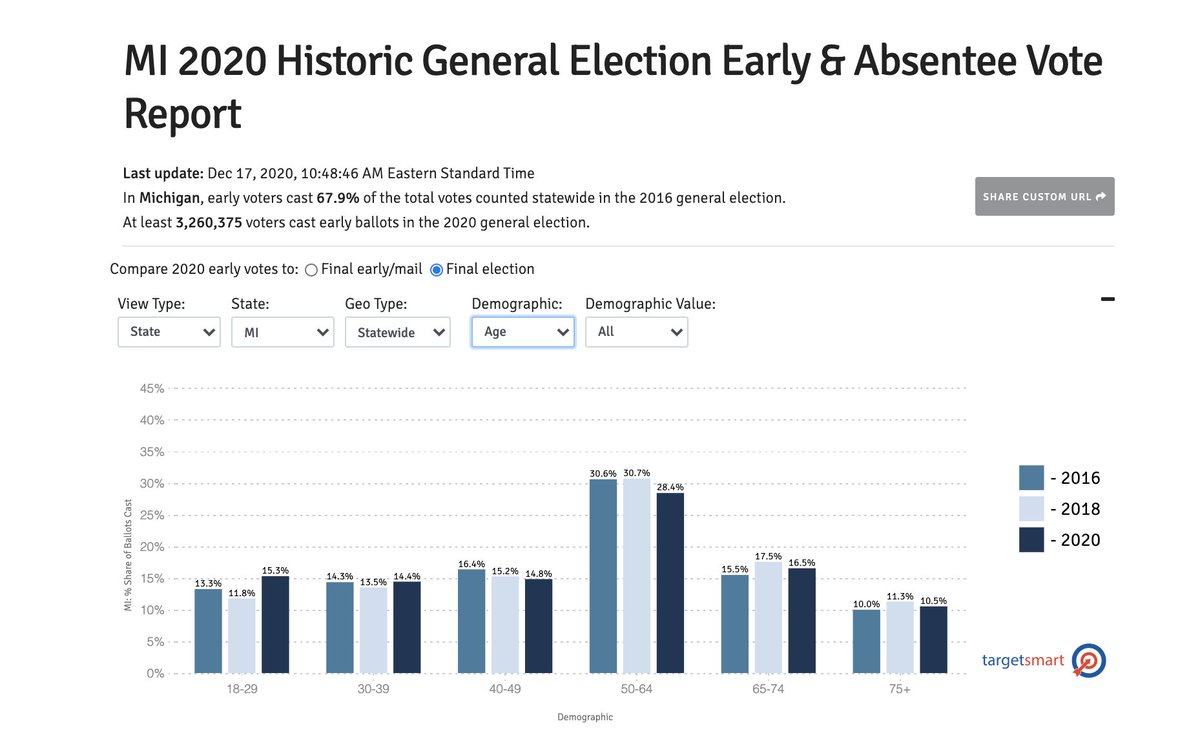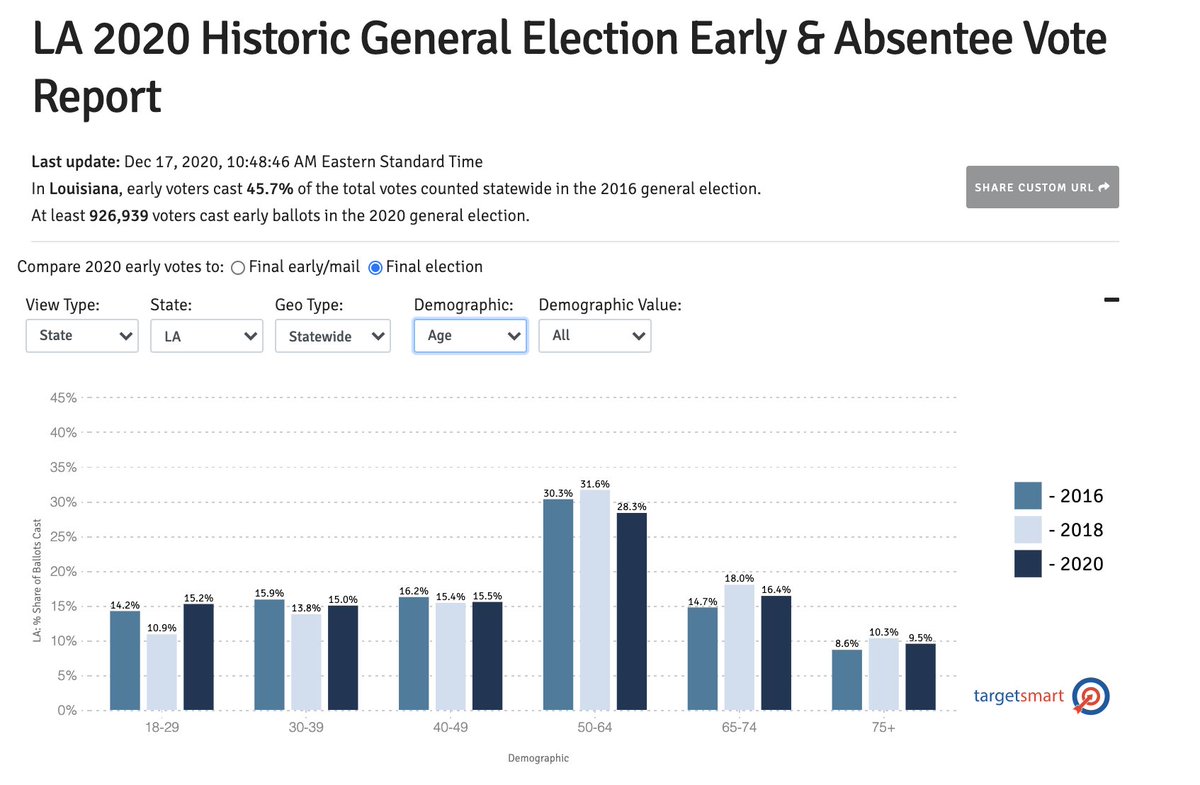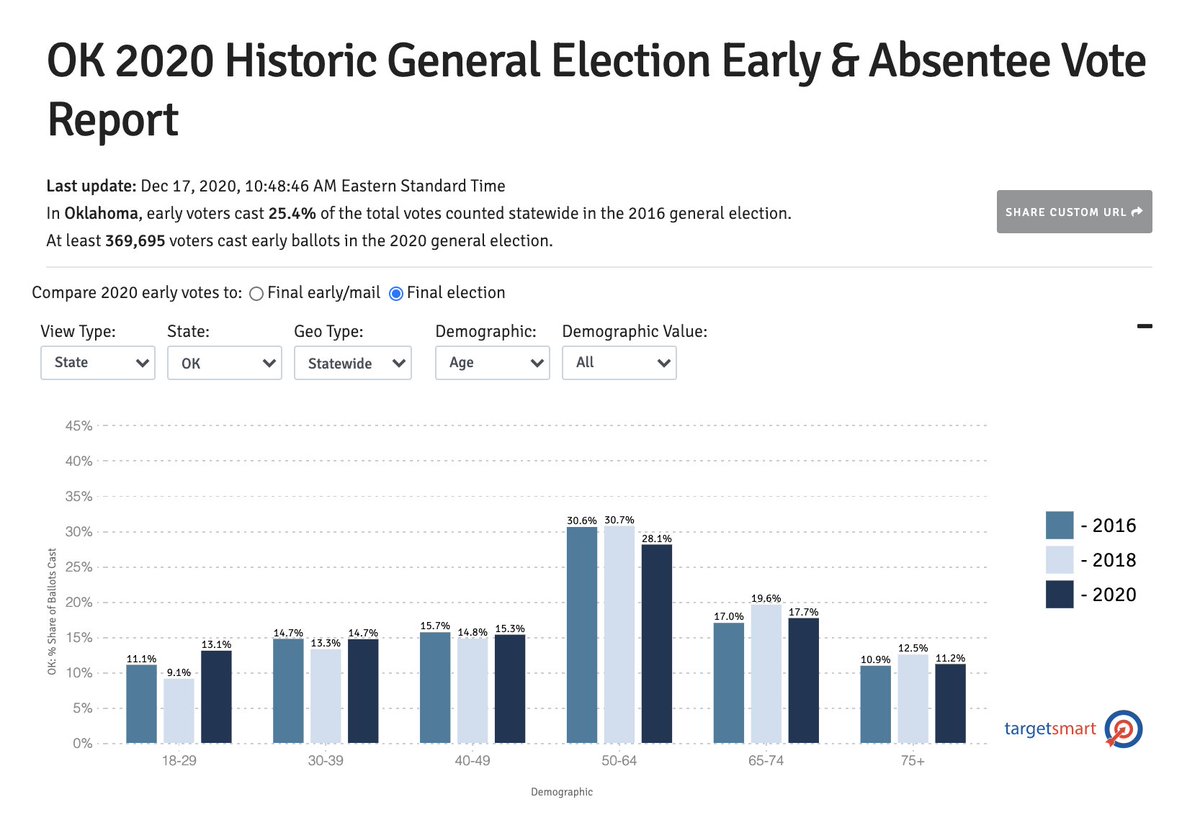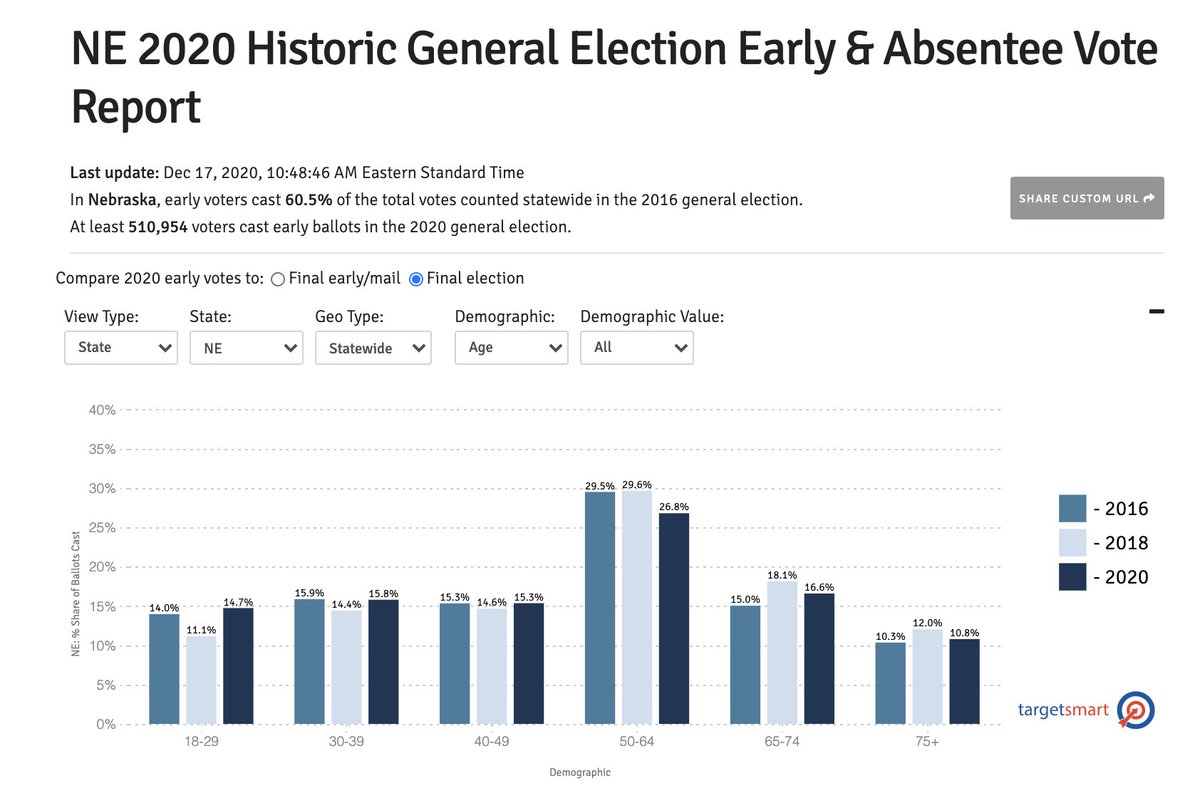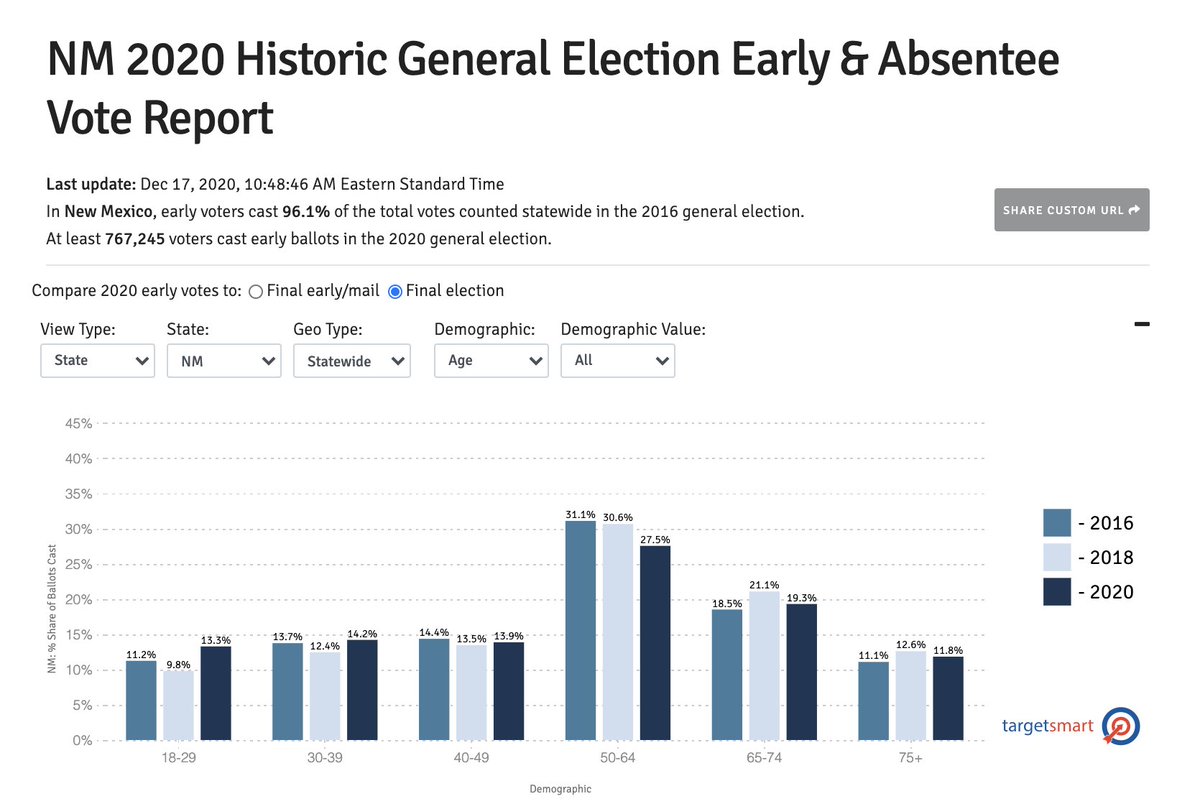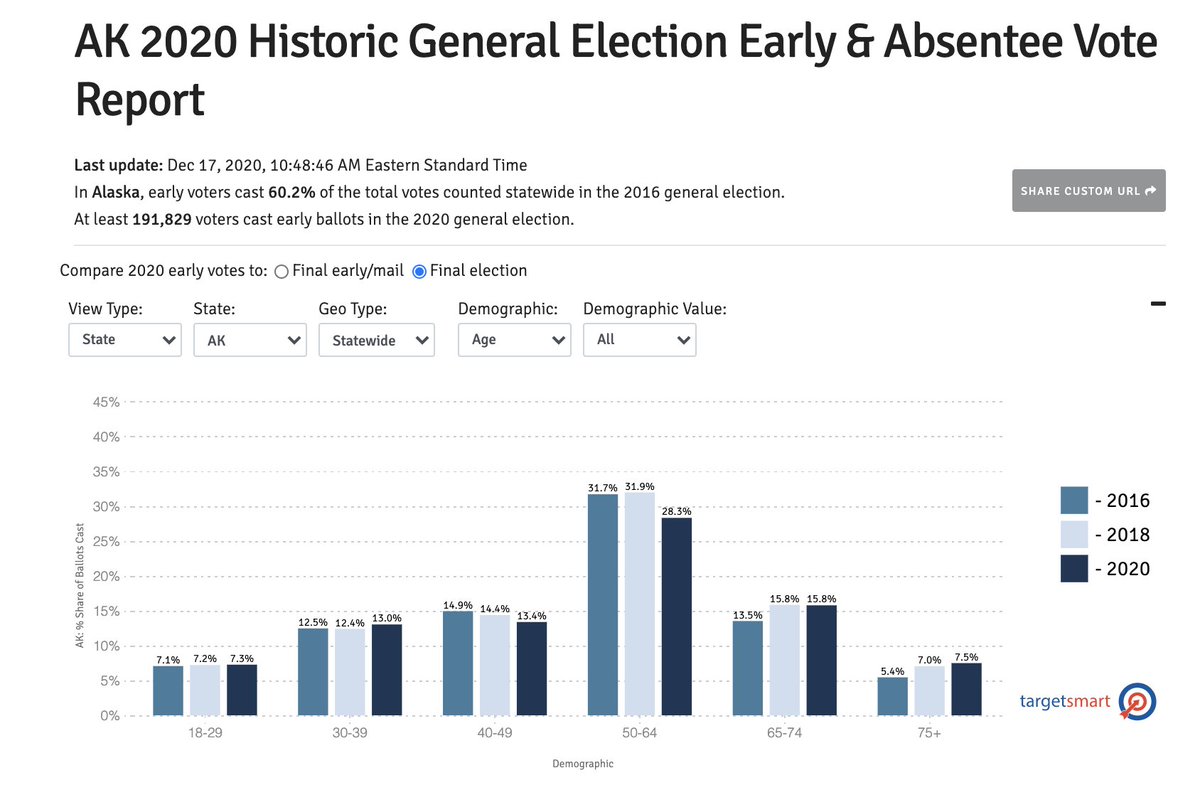
Georgia Senate Runoff Early Vote Update -
Black voters are turning out in huge numbers. While the overall turnout is at 81% of turnout at this point in the general election, Black turnout is at 86%. AAPI and Latino turnout had been lagging, but is now closing the gap.
Black voters are turning out in huge numbers. While the overall turnout is at 81% of turnout at this point in the general election, Black turnout is at 86%. AAPI and Latino turnout had been lagging, but is now closing the gap.

Similarly, the youth vote had been lagging badly behind the general election benchmarks, but with the historic levels of early in person voting starting a week ago, the gap is almost entirely closed now (which is remarkable). 

Quick update - we were comparing day 15 general election vote totals to day 16 runoff totals. Meaning the runoff early vote is actually a larger share of the general election turnout. Will update these stats shortly.
I've updated this thread with the accurate stats here -
https://twitter.com/tbonier/status/1341101539268714503
• • •
Missing some Tweet in this thread? You can try to
force a refresh

